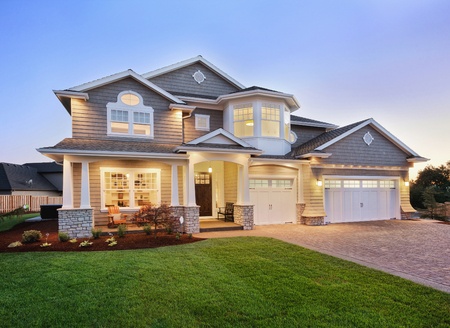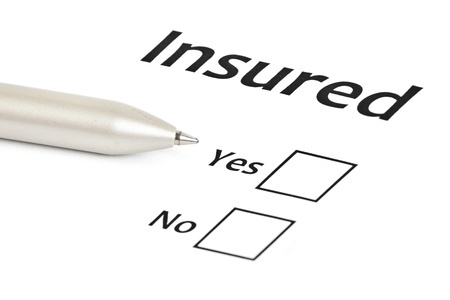Home Insurance | What Does Homeowner’s Insurance Cover
 It’s insurance, the arch nemesis of the financial world. You need it, but you hate talking or even thinking about it. We’re here to change that. Homeowner’s insurance, like all insurances, is meant to give you the best peace of mind about your belongings (especially for your home since just about everything you own is in there) and is also meant to prepare for those unforeseen accidents and emergencies that are sure to come. We’re here to give you the long and short of it to make sure you know just what you are paying for and that you get the best deal for your money and your family.
It’s insurance, the arch nemesis of the financial world. You need it, but you hate talking or even thinking about it. We’re here to change that. Homeowner’s insurance, like all insurances, is meant to give you the best peace of mind about your belongings (especially for your home since just about everything you own is in there) and is also meant to prepare for those unforeseen accidents and emergencies that are sure to come. We’re here to give you the long and short of it to make sure you know just what you are paying for and that you get the best deal for your money and your family.
How Does Homeowner’s Insurance Work?
Home insurance can be basically split into two different things: your personal belongings and the overall structure of your home. Within these two different sections there are a number of ways that you can actually insure them.
Personal Belongings
You can insure your personal belongings by either picking actual cash value or replacement cost coverage. Under actual cash value, you will receive an amount that is equal to the amount it would take to replace the damaged property (minus depreciation). Most home insurance policies provide this coverage unless it specifies replacement cost coverage.
Under replacement cost coverage, your insurance provider will pay the dollar amount required to replace any damaged personal property with items of similar kind or quality, not including a deduction for depreciation. You should pick this option if you want the insurance company to reimburse you for the cost of new versions of your belongings if an incident occurs. Some policies will promise “cash value” or “fair market,” but this means the company will give you the current value of an item, including wear and tear and depreciation. This means that you will have to state in your claim what the item was worth when it was lost, not if you were to buy it new right now.
When shopping around, be sure to ask how your home insurance company covers a claim. Some companies ask that you buy the new item to replace what was lost and then send in a receipt before you get reimbursement. Ask how the company will reimburse you, and be sure that you know their timeline especially if you don’t plan on replacing a larger or more expensive item right away while you’re rebuilding.
Structure
Insuring the structure of your home can be done by either picking actual cash value, replacement cost or extended replacement cost. If you choose actual cash value, your policy will cover the cost to replace your house minus depreciation costs for use and age. This means that if the life expectancy of your roof is about 20 years and the roof is now 15 years old, the cost to replace it today will be much higher than its actual cash value.
If you choose replacement cost, your insurance provider will pay you the cost of replacing any damaged property without a deduction for depreciation. This is, however, limited to a maximum dollar amount.
Under extended replacement cost, any costs due to damage will be covered up to a certain percentage over the limit (generally 20 percent). This kind of coverage will help to give you protection against certain things such as a sudden increase in construction costs.
When shopping around for homeowner’s insurance you should look for a policy that will pay enough to build the exact same house in the same spot. Ignore what you paid for the house, market values aren’t a good foundation to base your policy on. You should pay attention to and be aware of the fluctuation in home values and construction costs in your area if you would need to rebuild your home. If your neighborhood or community is experiencing a huge increase in values, you want to make sure that your homeowner’s insurance policy will provide enough resources to rebuild your home.
Homeowner’s insurance is processed the same way that car insurance is: with deductibles and premiums. So the higher your deductible, the lower your premium. If you were to lose everything tomorrow, what is the most you would be able to pay at that moment? That amount is your deductible. If you can’t cash out a large amount, then you should pick a higher premium — your monthly payment. Don’t worry, though, you can change this whenever you renew your homeowner’s insurance so you don’t have to be stuck with a high monthly payment forever. Keep tucking some money away into a savings account so that the next time you renew you can switch to a lower premium.
What Does Home Insurance Cover?
Home insurance covers a wide range of items and situations. You can insure the basics or, if you’re building, you can include liability insurance. You can also get coverage for apartments or vacation condos.
The Basics
We mentioned the basics above, but here are a few things that you should be aware of. Most policies will cover damage caused by windstorms, lightning, hail, fire, theft or vandalism. Other situations include smoke, explosion, volcanic eruption, riots, civil commotion, aircraft (if something falls from an aircraft) and vehicles (if something is thrown from a vehicle). Many companies will actually exclude tornadoes, earthquakes, mudslides, sinkholes, landslides, hurricanes, sump-pump failure or sewer backups in their coverage, but oftentimes you can purchase supplemental insurance for some situations that are excluded. Others you just can’t get covered such as nuclear accident coverage.
Most policies will include the structure coverage mentioned above and the personal belongings/property. They will also include other-structures coverage (for garages, fences, cottages or sheds on the property), liability insurance, loss-of-use coverage and additional home coverages.
Liability Insurance
If you’re building your new abode, having liability insurance could be a pretty smart investment. If a contractor slips and breaks an arm or a leg while repairing your roof or if something falls on someone’s head, liability insurance will cover you for any potential costs. Liability can also cover you if a party guest is injured or leaves your home intoxicated and gets in an accident. Liability can even include costs if your dog bites a neighbor (but not if there is a history of previous bites that are considered vicious). If you have expensive assets, consider an umbrella policy, which, if tailored well, can kick in when your home insurance liability cuts off. An umbrella policy can boost liability coverage into the millions, so you’re really covered.
Loss-of-use Coverage
Loss-of-use coverage will potentially cover you for any living and housing expenses that accrue if you have to temporarily move out of your home during a restoration. There will be a limit set on this since an insurance company probably won’t pay to house you in a hotel forever. This coverage will have a limit on how long you stay and how much you can spend.
Additional Home Coverages
Additional coverages can provide protection from the weight of snow, ice or sleet; flooding from appliances, fire-protection sprinkler systems, HVAC or plumbing; glass breakage, damage to electrical parts due to power surges not caused by lightning (damaged electronics like computers aren’t usually covered, though); and abrupt collapse like from termite damage.
When going over your coverage it is important to note that you could lose coverage if your home has features that make it vulnerable to certain incidents. For instance, if your home has unrated wood shake roof shingles and you live in an area with frequent wildfires, you may not be able to get coverage for fire damage.
Some much older homes will require a different kind of home insurance since it would be impossible to completely replace. Generally, under an insurance policy for a historic home or older home you will only get the repair cost or market value rather than replacement value. You could also look into a law and ordinance policy that covers the cost of rebuilding based on today’s building codes.
Is Homeowners Insurance Required?
 Unlike auto insurance, homeowner’s insurance is not required when you own a home. However, many mortgage lenders will require you to have coverage. If you live in an area or region prone to earthquakes or flooding, lenders may also require you to have insurance, though they may just require earthquake or flood insurance. Once a mortgage is paid off you won’t be required to have homeowner’s insurance, but it is wise to keep a policy active if you wish to avoid risking what you have invested into your home.
Unlike auto insurance, homeowner’s insurance is not required when you own a home. However, many mortgage lenders will require you to have coverage. If you live in an area or region prone to earthquakes or flooding, lenders may also require you to have insurance, though they may just require earthquake or flood insurance. Once a mortgage is paid off you won’t be required to have homeowner’s insurance, but it is wise to keep a policy active if you wish to avoid risking what you have invested into your home.
If you own a co-op or condominium, some boards will require home insurance or condo insurance. Townhomes or townhouses or apartments will possibly require renters’ insurance. Always check with your board or association.
Is Homeowner’s Insurance Tax Deductible?
Unfortunately, homeowner’s insurance isn’t tax deductible, according to the IRS. You can deduct real estate taxes paid to the taxing authority, mortgage insurance premiums, and interest that qualifies as home mortgage interest. Many would assume it could be, since your insurance premium can be included in property payments. But your homeowner’s insurance premium is a nondeductible expense. You can’t itemize any payments for insurance (including comprehensive or fire coverage) or title insurance as a deduction on your tax return.
How Much Does Home Insurance Cost?
 The cost of home insurance is dependent upon your deductible, premium and where you live (just like auto insurance). Your deductible is what you pay at the time of a claim, whereas the premium is your monthly or annual payment fee. If you pick a higher deductible, your premium will be much lower, but if you have to make a claim for repairs you may be required to shell out more money before you meet the deductible. Generally, the cheapest home insurance can be found in states like Idaho, Oregon, Utah and Wisconsin and can average around $494. More expensive policies can be found in Texas, Mississippi, Louisiana and Florida and can reach up to $1,583 on average. This is due to their placement along the Gulf of Mexico and because they experience large hurricanes, a huge risk. The overall U.S. average for homeowner’s insurance is about $804.
The cost of home insurance is dependent upon your deductible, premium and where you live (just like auto insurance). Your deductible is what you pay at the time of a claim, whereas the premium is your monthly or annual payment fee. If you pick a higher deductible, your premium will be much lower, but if you have to make a claim for repairs you may be required to shell out more money before you meet the deductible. Generally, the cheapest home insurance can be found in states like Idaho, Oregon, Utah and Wisconsin and can average around $494. More expensive policies can be found in Texas, Mississippi, Louisiana and Florida and can reach up to $1,583 on average. This is due to their placement along the Gulf of Mexico and because they experience large hurricanes, a huge risk. The overall U.S. average for homeowner’s insurance is about $804.
Your policy will also depend on the worth of your home and your belongings. If you have a home that is worth $100,000, but your belongings are about $50,000, you should get a policy that will cover both of these. Don’t just get one for $100,000. Make sure your policy can cover all your personal belongings and your dwelling.
Note, too, that policy costs will also be determined on the age of your home and other risk factors such as a swimming pool and if you own a dog (depending on the breed).
Cheapest Homeowners Insurance
Because the cost for homeowners’ insurance is dependent on many factors, the largest being where you live, it is hard to determine just which is the cheapest bang for your buck. If you’re looking to relocate, policies in Idaho, Oregon, Utah, Wisconsin and Washington fall far below the U.S. average of $952 by almost $400.
House Insurance Quotes
Of course, the best way to figure out the cost of home insurance is to shop around, do your research on market and construction values and to get a home insurance quote. Now that companies don’t charge to give you a quote, it’s so much easier to see exactly what you will be paying for and just about how much. Because there are so many different factors that go into determining your policy and what is best for you, your family and your assets, it is best to get a home insurance quote and talk to an insurance agent. Be sure to shop around and make sure to ask even the tiniest questions about details. It is easy to assume that something is covered because it isn’t mentioned, but more often than not if it isn’t in the policy you can’t get reimbursed for it. Talk about every situation and make sure you know exactly what is getting covered.
